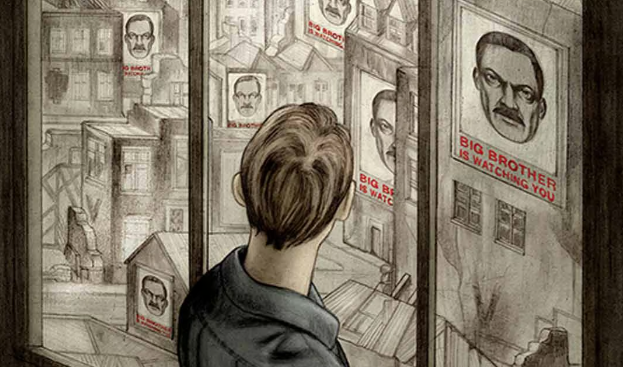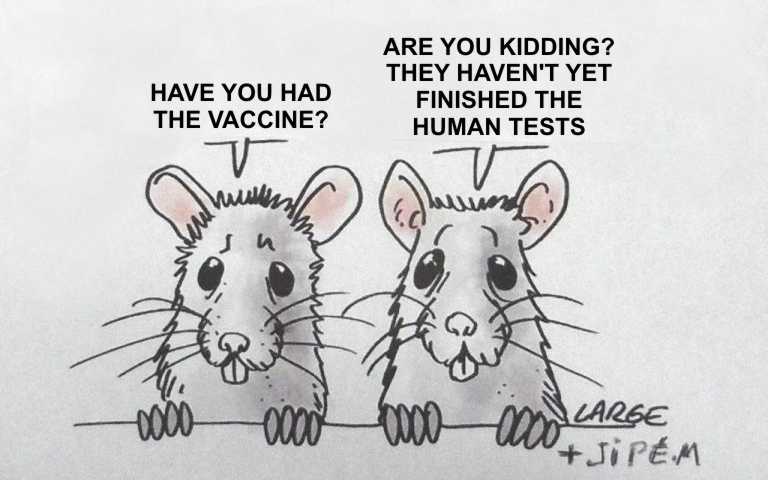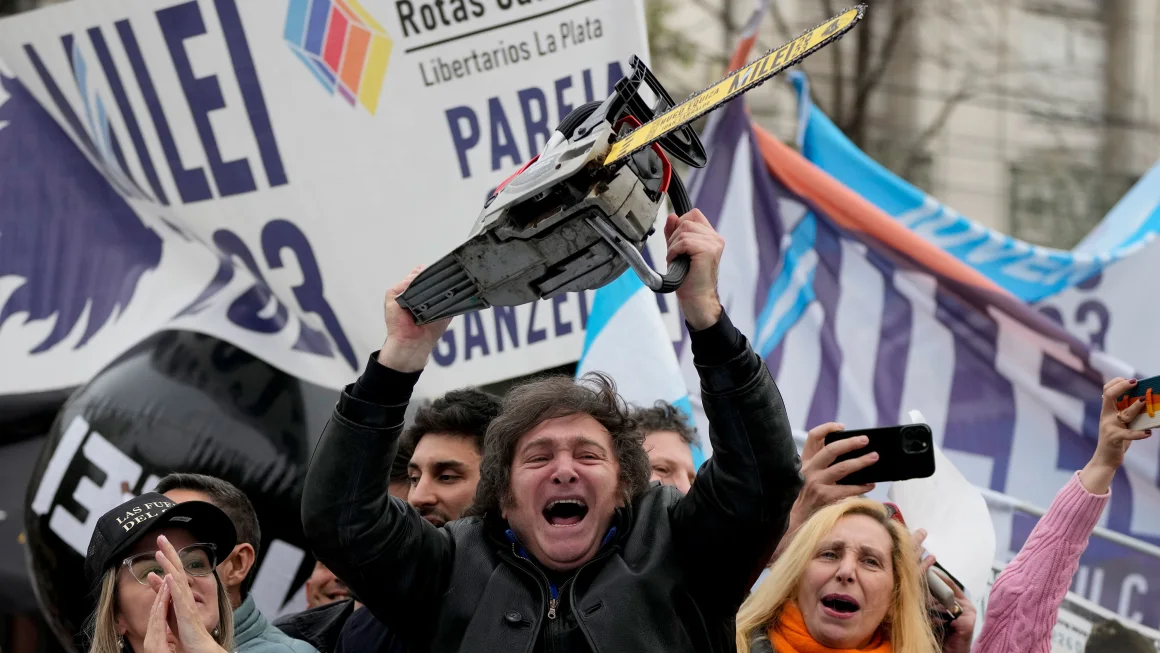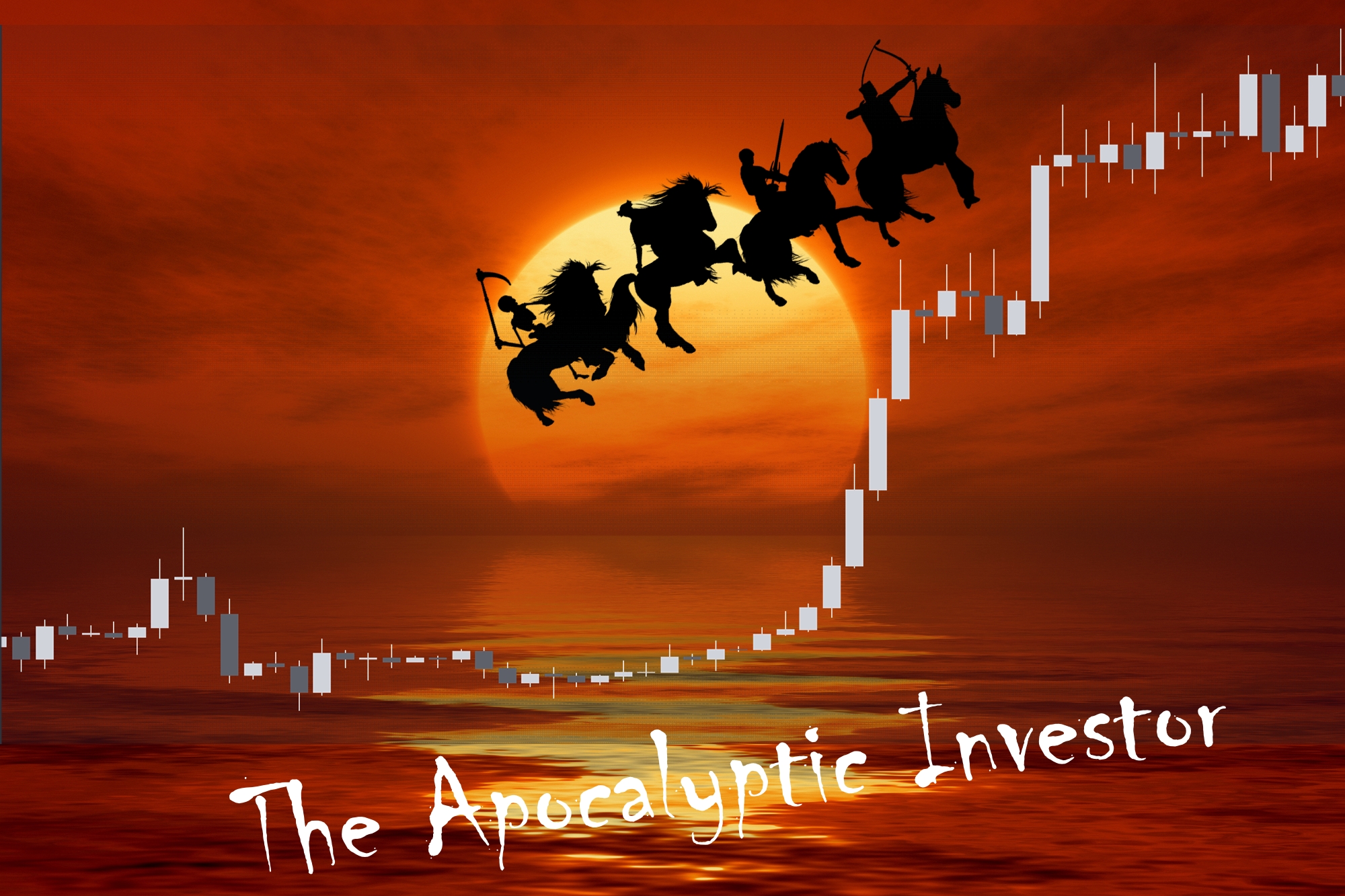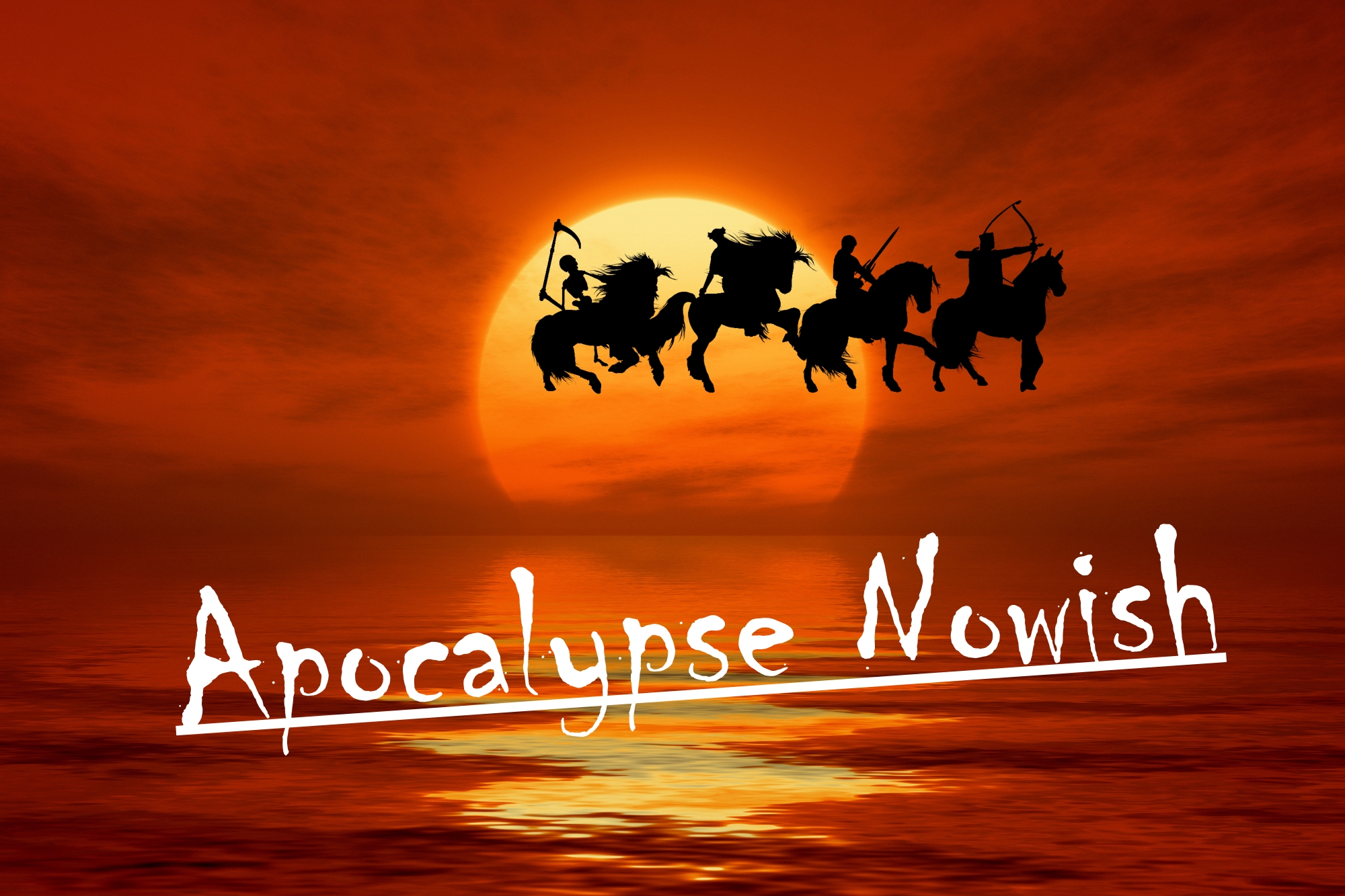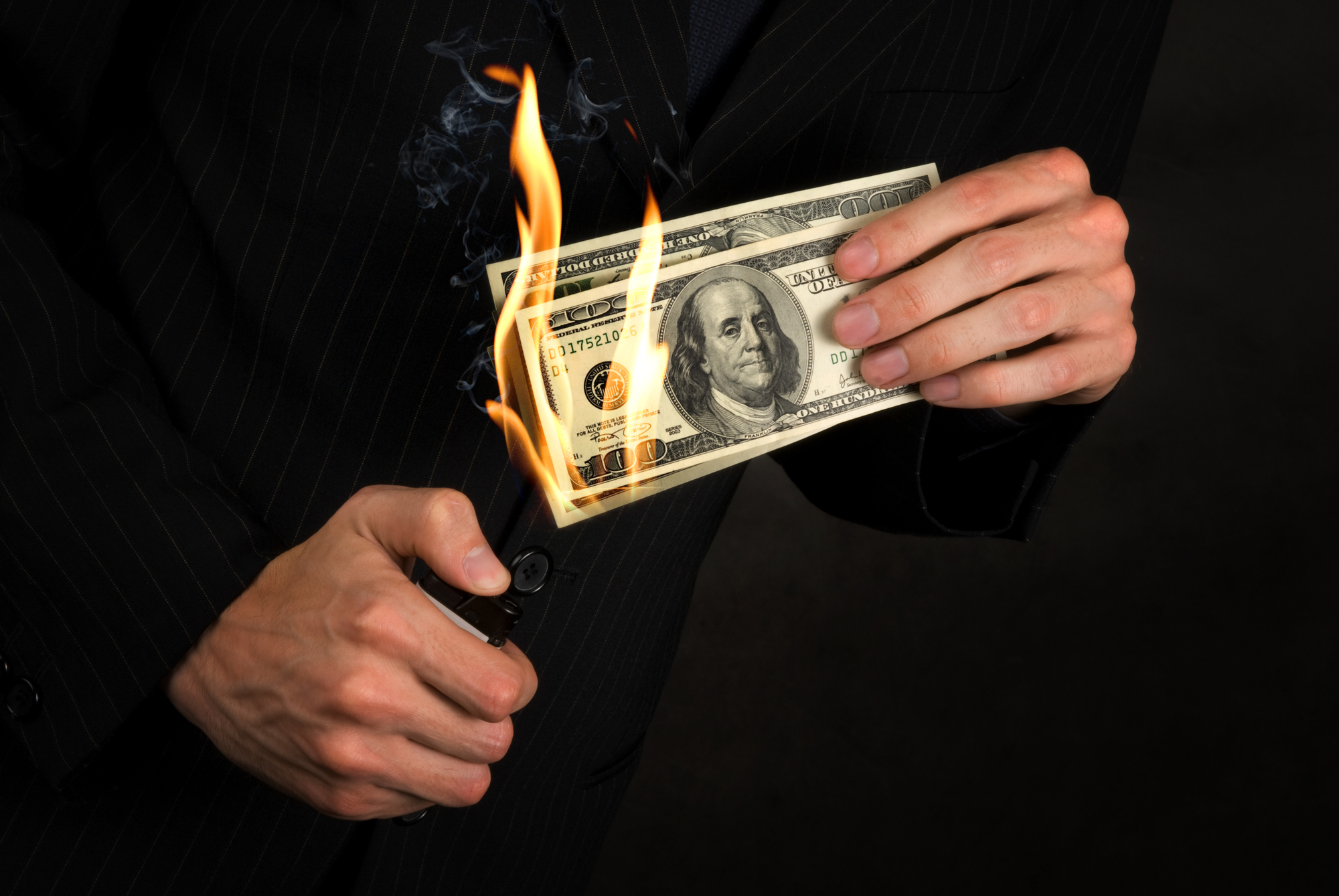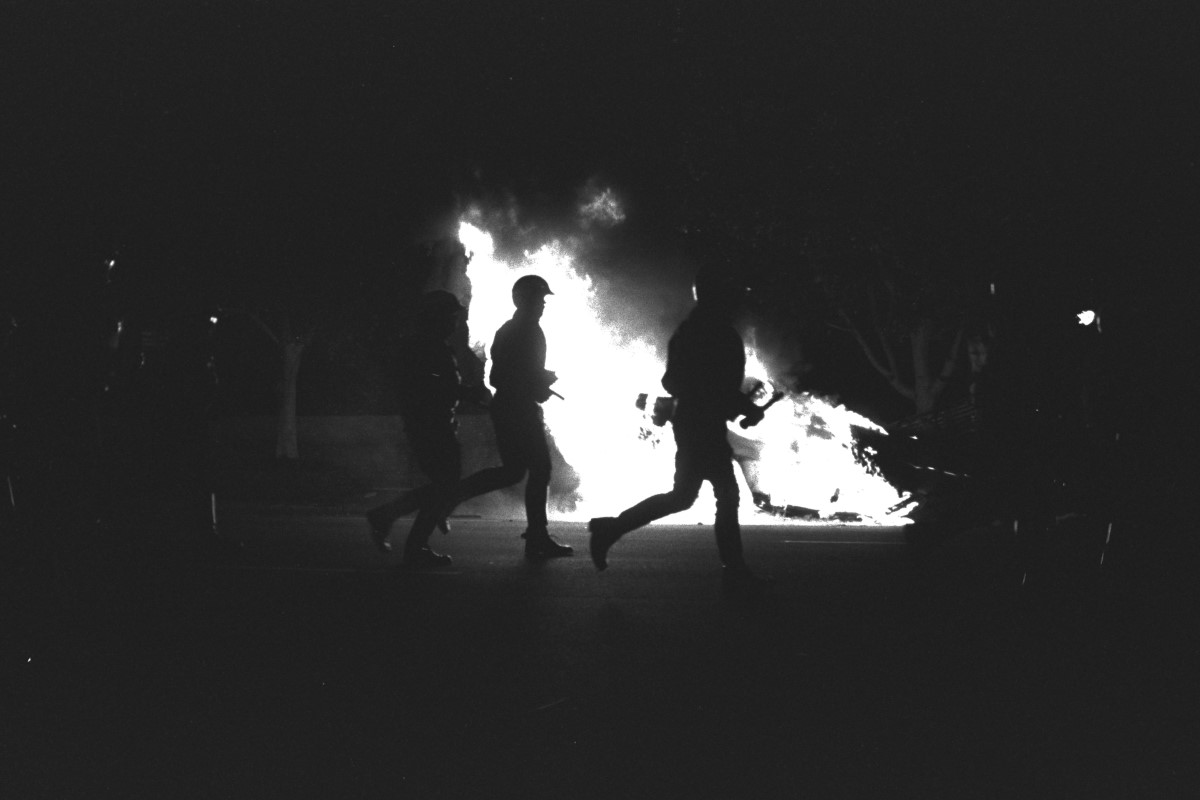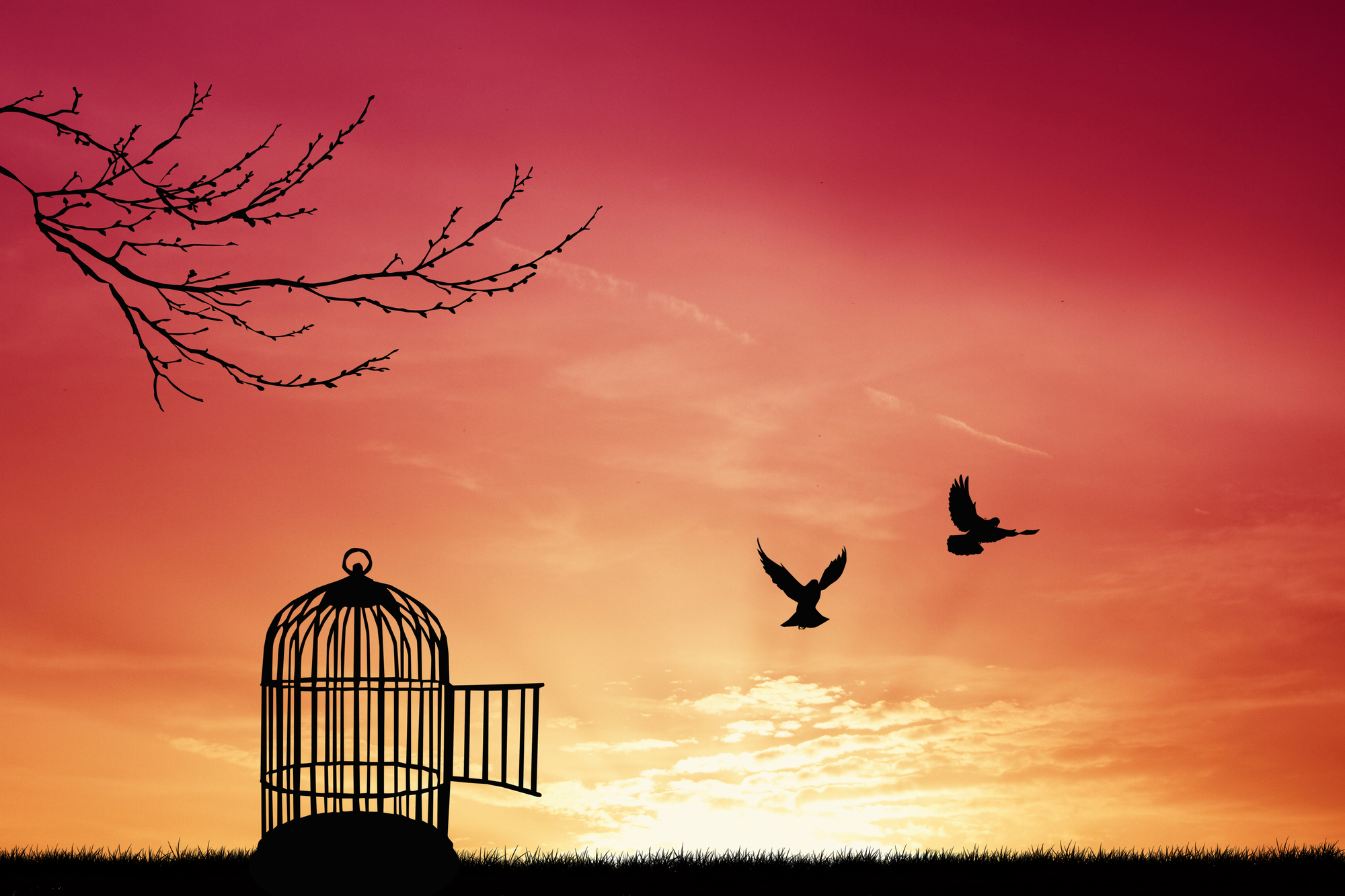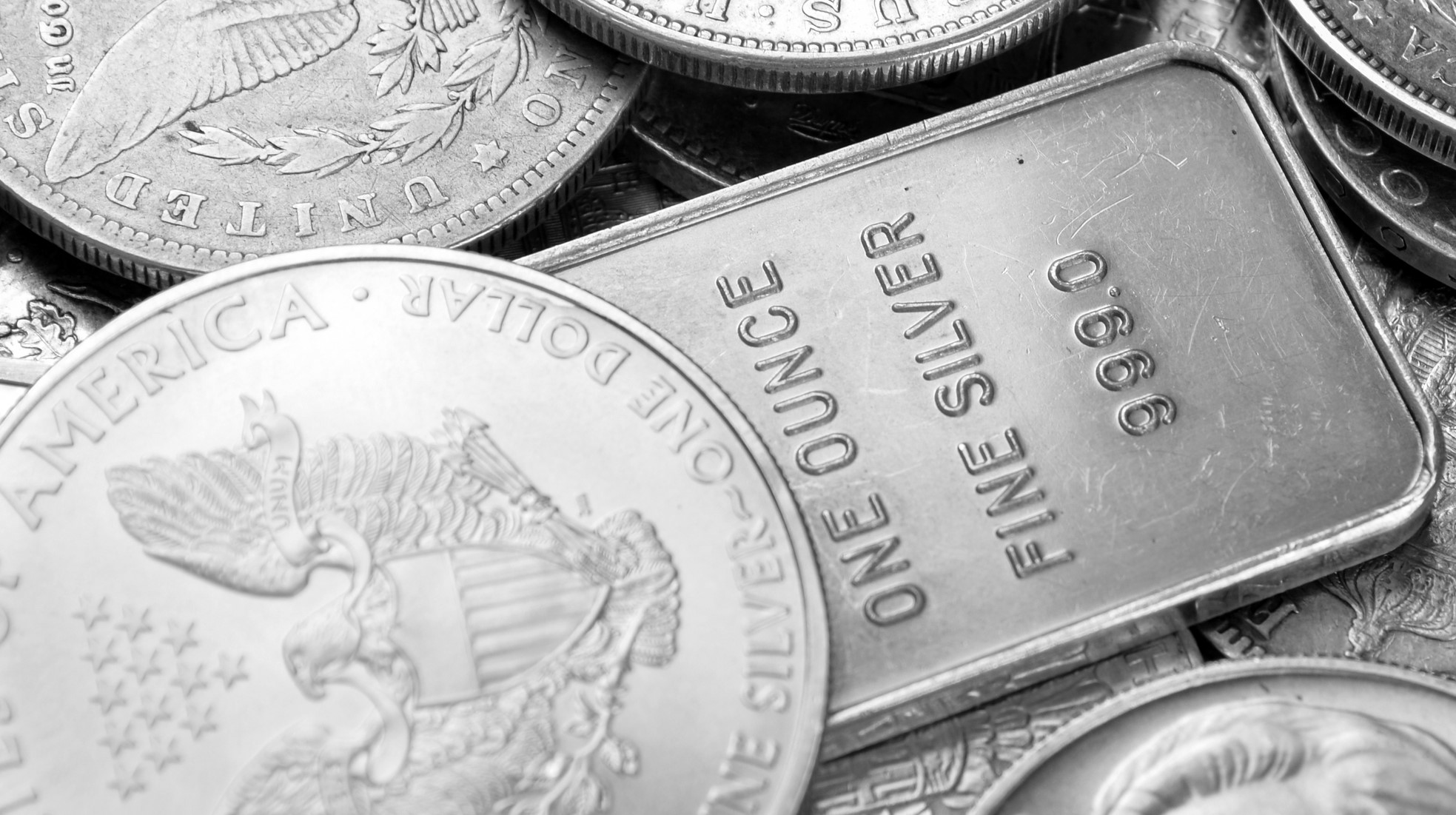Freedom has been getting some bad press lately. If you’re pro freedom of speech, you must be in favour of disinformation and double-speak, and you’re probably a ctrl-alt-right cis-racist. If you’d like the freedom to decide how to spend the money that you earned, you’re a capitalist pig-dog (if you want to decide how other people’s money is spent, that’s not selfish but noble and “progressive”). Insisting on medical freedom, central to Western ethics since the Nuremburg trials for some reason, would until recently have attracted pejoratives, penalties, or punishments.
The serial insulters, the professionally offended, the captive media, and in general all those who attack the person instead of their logic when faced with a genuine and thorough-going curiosity about the world – are wrong, on this as they are on everything else.
Freedom is not merely important. It’s more important than anything else.
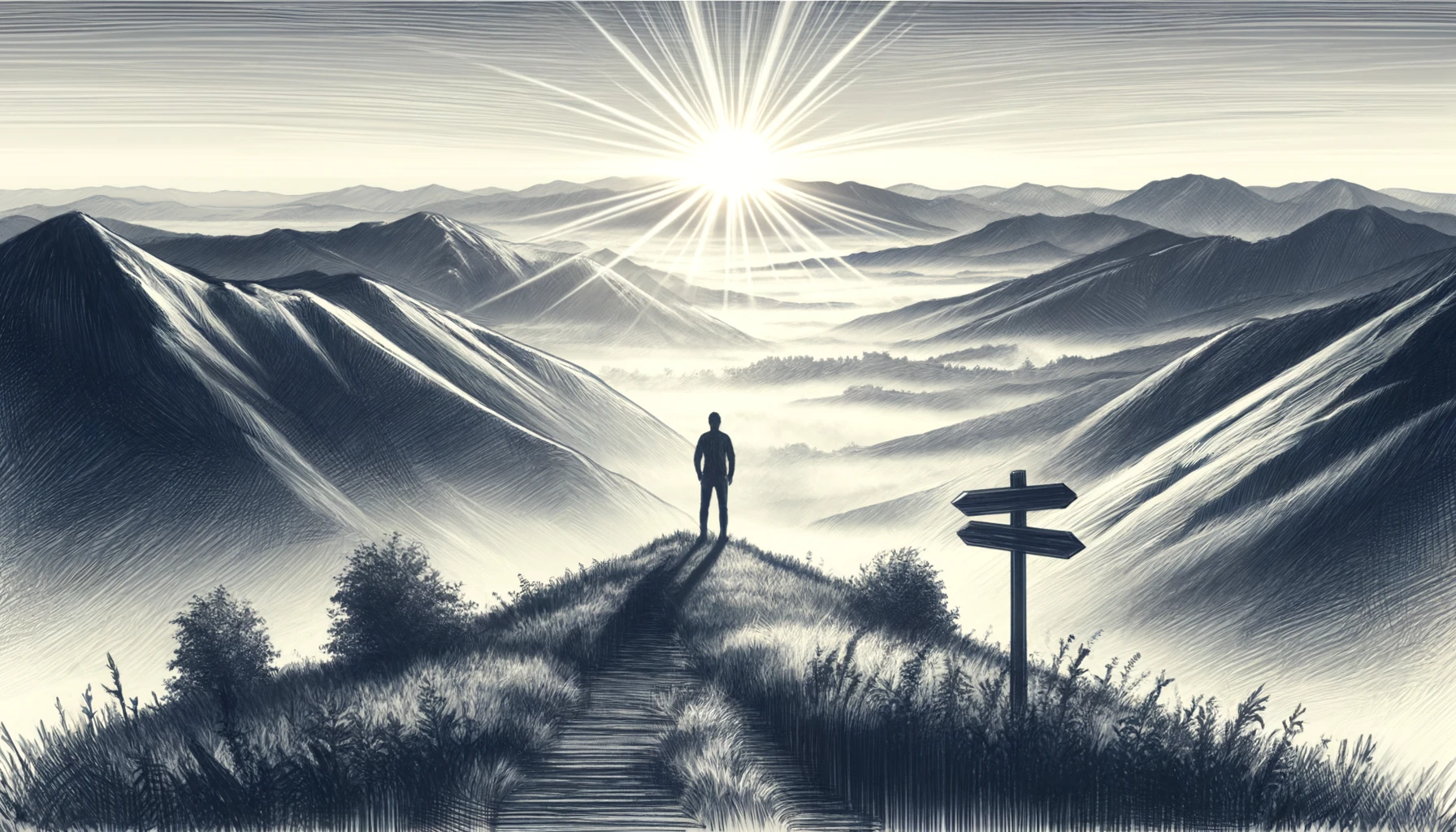
Once you understand this, the terrible confusion and noise of modern life begins to make some sense. Acquaintances and strangers, experts and officials: all of them step forward clearly and willingly into the chalked-out circles of Friend or Foe. Your values reorient themselves quietly and naturally. You can start to position yourself in life for your own greater good.
Big words. Let’s prove it. Let’s compare freedom to everything else we idolise and pursue.
Comfort
Humans are wired by millions of years of evolution to pursue comfort – the maximum pleasure for the least effort. And yet, most of us most of the time still value freedom more. The proof of this is that swapping freedom for comfort (which, along with swapping it for Safety, is essentially the entire gameplan of the managerial State) must be done gradually, since no-one would agree to become a comfortable slave all at once.
As the internet memorably, if perhaps apocryphally, puts it:
You catch wild pigs by finding a suitable place in the woods and putting corn on the ground. The pigs find it and begin to come every day to eat the free corn.
When they are used to coming every day, you put a fence down one side of the place where they are used to coming. When they get used to the fence, they begin to eat the corn again and you put up another side of the fence. They get used to that and start to eat again.
You continue until you have all four sides of the fence up – with a gate. The pigs, who are used to the free corn, come through the gate now to eat and then you slam the gate down on them and catch the whole herd. Suddenly the wild pigs have lost their freedom. They run around and around inside the fence, but they are caught.
Soon they go back to eating the free corn. They are so used to it that they have forgotten how to forage in the woods for themselves, so they accept their captivity.
We tend to look down on anyone who would willingly swap their freedoms for comfort, precisely because this resembles animal instinct more than the best of what it is to be human.
Inoffensiveness
If liberty means anything at all, it means the right to tell people what they do not want to hear.
George Orwell, unpublished preface to Animal Farm.
The you-can’t-say-that useful idiots and the shutter-uppers are very much in power these days. Still, if you take a wider view, censors are never on the right side of history.
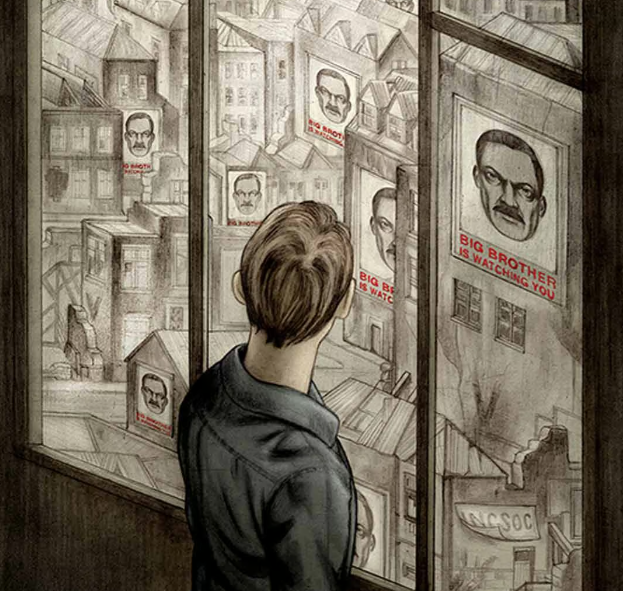
There is a very limited legitimate use of censorship, which is to protect the public from degrading nonsense: stuff that is produced for no especially good reason, and which has a corrosively negative effect on the minds and morality of those exposed to it. It doesn’t take much imagination to think of several kinds of things that serve no purpose except to disturb. Surely it’s best that society at least limits their reach, even if we may not ban them entirely. Even free speech absolutists would not wish to put pornographic or terrorist materials in school libraries, for example.
The problem comes when you start to widen the definition of “offensive”. It used to mean “would offend any upstanding member of society”, i.e., enforcement of the shared cultural norms of the majority. Now, it means “anything that could offend any member of a ‘protected class'”, which is pre-emptive judgement by the most dysfunctional minority.
We recognize that words can sometimes cause offence, but we reject the idea that hurt feelings and discomfort, even if acute, are grounds for censorship. Open discourse is the central pillar of a free society, and is essential for holding governments accountable, empowering vulnerable groups, and reducing the risk of tyranny.
The Westminster Declaration
A similar cheapening of the meaning of “harmful” has been deliberately undertaken. These days, it effectively means anything that harms the narrative du jour of the ruling class.
We’ve also lost sight of the “for good reason” part. There is a world of difference between saying something controversial to inform, protect, or educate, and doing it for shock value or cheap entertainment. Motivation is key. Genuine inquiry, satire, and debate will always offend someone or other, but must be protected.
There is thus, I think, a defensible thin end of the wedge of limiting freedom of speech. But this does not justify hammering that wedge all the way until it splits society. Limiting the spread of genuinely awful, pointless content is not what people mean when they complain about censorship.
They mean not being able to criticise the government. They mean not being able to even mention the sickness and death of their loved ones online. They mean having the questions their elected representatives are asking on their behalf hidden from them.
Freedom of speech is the single freedom on which all others rest.
If you can’t say what must be said, you can’t defend what needs to be defended. If you can’t speak straight, you also can’t think straight.
So fuck inoffensiveness.
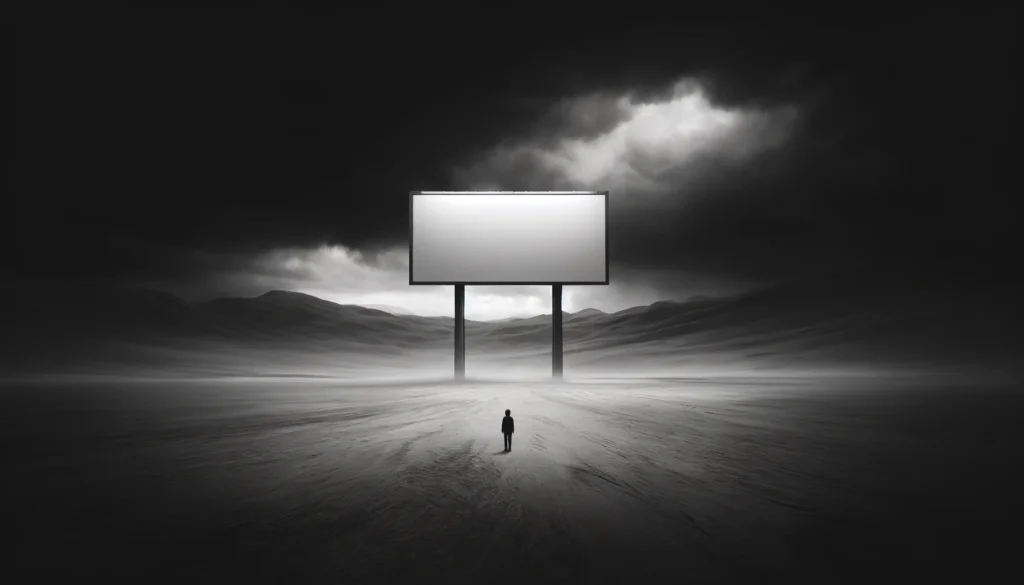
In the end we shall make thoughtcrime literally impossible, because there will be no words in which to express it.”
– George Orwell, 1984
Equity and Equality
Western governments at all levels (with the recent and notable exception of the about-face by the Trump administration 2.0), corporate boardrooms, HR departments and schools State indoctrination centres are obsessed with equity and (what they call) equality.
Words matter. Here, even a couple of letters make a 180-degree difference. Equity is not the same thing as equality.
True equality (equal opportunities) is a foundational positive. Equity (equal outcomes) is societal ruin.
Equity begins and ends in the destruction of freedom specifically. Equity says we must cut the legs off the tall ones and stretch out the short ones, to make everyone “equal”. Equity prioritises “fairness” over cause and effect, and inevitably, as all who rebel against cause and effect must, it crashes and breaks on the rocks of reality. Life is not fair and never will be. But it can be joyful, productive, and free.
Those who are paying attention will note that life is least joyful, productive, free, and fair under Socialist and Communist regimes, which explicitly push for equity with the entire force of the State.
Many years before Elon Musk said essentially the same thing, I responded to a musing from a Leftist friend about which system was “really” better, East or West Berlin, by saying, “The one that didn’t kill people trying to leave.”
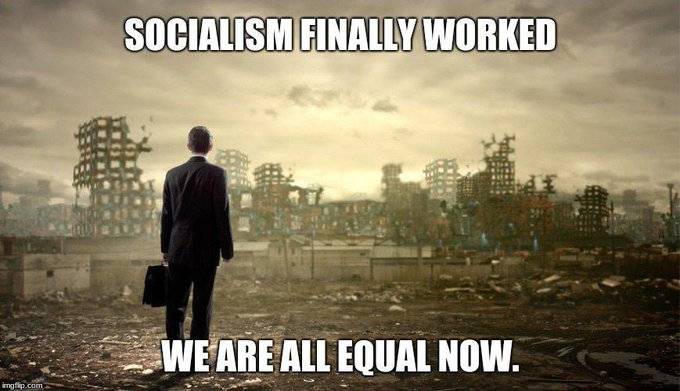
The paradox of equity is that in order to enforce all the highly unnatural rules that bring it about, you need to make some people (bureaucrats and apparatchiks) much more powerful – less equal – than the rest.
Perhaps the ultimate formulation of the argument against equality-of-outcome is the short story Harrison Bergeron, by the great Kurt Vonnegut, Jr. and I really recommend you read it or watch the short film adaptation.
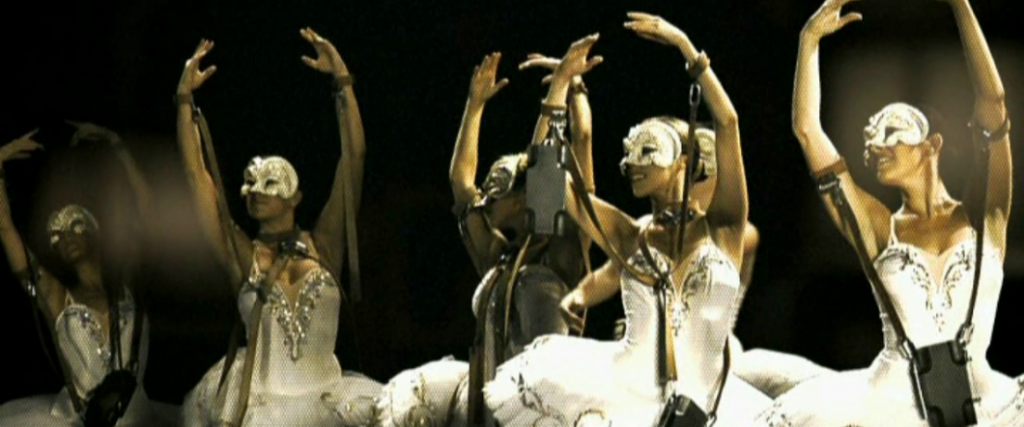
So if freedom is clearly better than equity, what about equality? Interestingly, freedom actually requires equality. The absence of irrelevant or unfair discrimination is necessary for a society to be free, because people held back for no good reason (like the weighted ballet dancers in the film above) are especially unfree. Equality is compatible with meritocracy because discriminating on relevant characteristics is not unfair, at least, it’s not adding any more unfairness to the natural order of things.
Only if everyone is equal under the law can you hope to get free outcomes. For example, we should prosecute rich, intelligent, well-connected Jewish criminals in the same way as we do poor, stupid, unknown Muslim ones (if those adjectives trigger you, take a breath and rearrange them as you wish until you can accept the underlying truth of the statement). Equality is the opposite of nepotism, favouritism, and corruption – the difference between First and Third World results.
Of course, we could treat everyone equally – but equally badly and restrictively. This proves that equality is necessary but not sufficient. Freedom is above equality.
Safety
Safety is the other giant carrot of the Managerial State. Only submit, goes the story, and your life will be both Comfortable and Safe. Only submit. Only surrender your freedoms to us, the faceless Mediocracy.
Should we?
We do want some safety. We don’t want armed criminals roaming the streets. We don’t want our womenfolk preyed on and our children attacked. We don’t want our taxes to be secretly used to fund gain-of-function research in leaky labs to create bioweapons. That would be unacceptable, wouldn’t it?
Most libertarians – the true lovers of freedom – traditionally say that the State should do only three things: secure the nation’s border, defend against invasion, and enforce a robust and fair legal system. Here, the law is envisaged as the minimum effective dose of rules that protect life, liberty and property. Imagine if only an intelligent number of culturally compatible people who raise the average level were allowed into one’s country, if there was sufficient defensive deterrent to war, and if those who commit what we all agree are crimes were swiftly and justly dealt with. This arrangement is supposed to provide enough security and maximum freedom.
Unfortunately, this bare-bones setup does not provide enough control for the control freaks in Government, nor maximum unearned money for their freakishly rich friends and funders. In all times and places, the elite parasite class spends much of their time thinking up things to frighten the TV-watching classes with, in order to justify more control and more siphoning off of wealth via taxes and grants.
The first stroke of genius is: this sensible minimum level of State-sponsored safety actually ensures maximum freedom.
Obviously, as you ratchet up the centralised safety, it removes freedom in proportion. But surprisingly, if you have any less security than we just described, you also start to get less freedom, because people in a nation weakened by dysfunctional immigration, attacked or threatened by enemy States, and overrun by criminals, have fewer options and less surplus – are far less free – than those who are not.
The relationship between mandatory safety and freedom is therefore not a sliding scale. It looks like this:
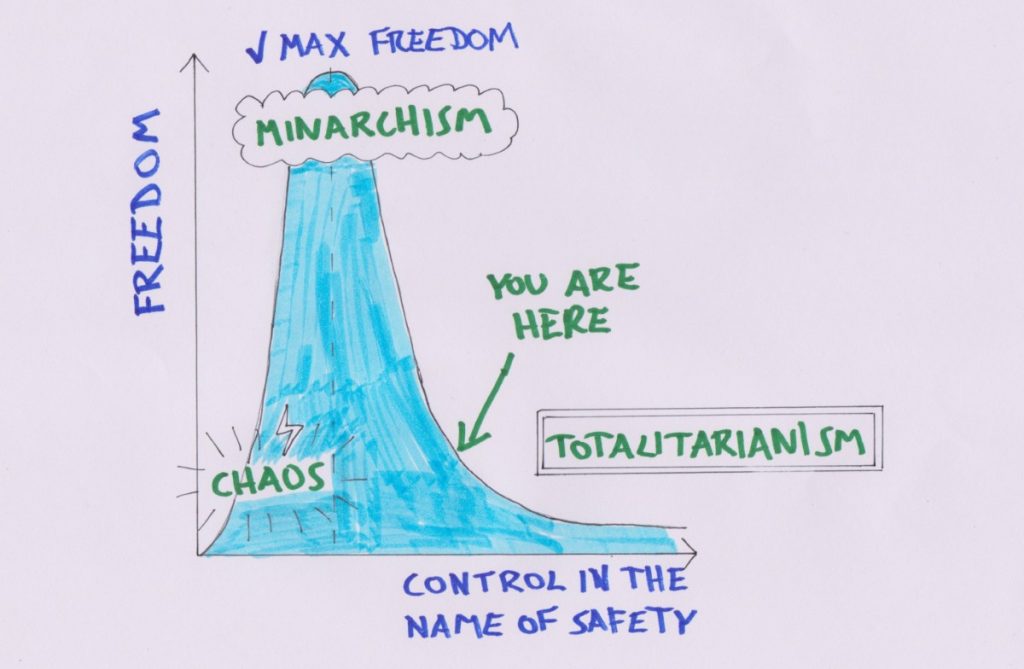
To avoid this essay becoming a book, it’s not important for the main argument what form a Minarchist government takes, whether it’s a conventional State as we now have but just smaller, or whether it’s a decentralised or voluntary system of some kind. We also won’t go into what Anarchy means.
To further simplify, we won’t consider for long the fact that the true shape of the graph depends on what kind of society we apply the model to. High-trust societies require less governing. By contrast, low-IQ societies (ones in which, among other signs, people consistently fail to act in ways that treat their future selves as being equally deserving as their present selves – precisely because it’s difficult for them to think abstractly enough to do so) require a heavy guiding hand to prevent societal breakdown, up to and including famine, widespread destruction of infrastructure, and hacking their neighbours or unarmed civilians to death en masse, as has happened in living memory.
In the modern State, we end up “protected” from almost everything, in theory:
- From dangerous medicines and medical practices through State monopoly on drugs and doctors – except it doesn’t work because prescription drugs, not to mention waiting lists, kill really rather a lot of people, and the safe supplements and remedies that prevent and treat disease are centrally suppressed.
- From organised crime and money laundering, by having to justify moving small sums of our own money around – except it doesn’t work because it’s actually the big banks who do most of the real laundering.
- From violent attack, through banning ordinary people from owning various means of self-defence – except it doesn’t work because the criminals use weapons anyway.
And on and on. Since the rules that control us are, for all practical purposes since no one person knows them all, now infinite, we should be infinitely safe. Instead, we’re impoverished, gaslit, and poisoned from cradle to grave, that final destination possibly arriving far too early if you stray into a no-go zone or a mostly-peaceful protest.
We didn’t even get the safety they promised. But we are tracked, controlled – and infantilised. When a slightly-worse-than-normal flu arrives, but with killer PR, we look upwards helplessly to the Nanny State, to Big Brother, for safety, and give away freedom of movement, of association, of speech, and bodily autonomy in return.
In modern Western society, we have to ask permission for almost everything. It’s pathetic.
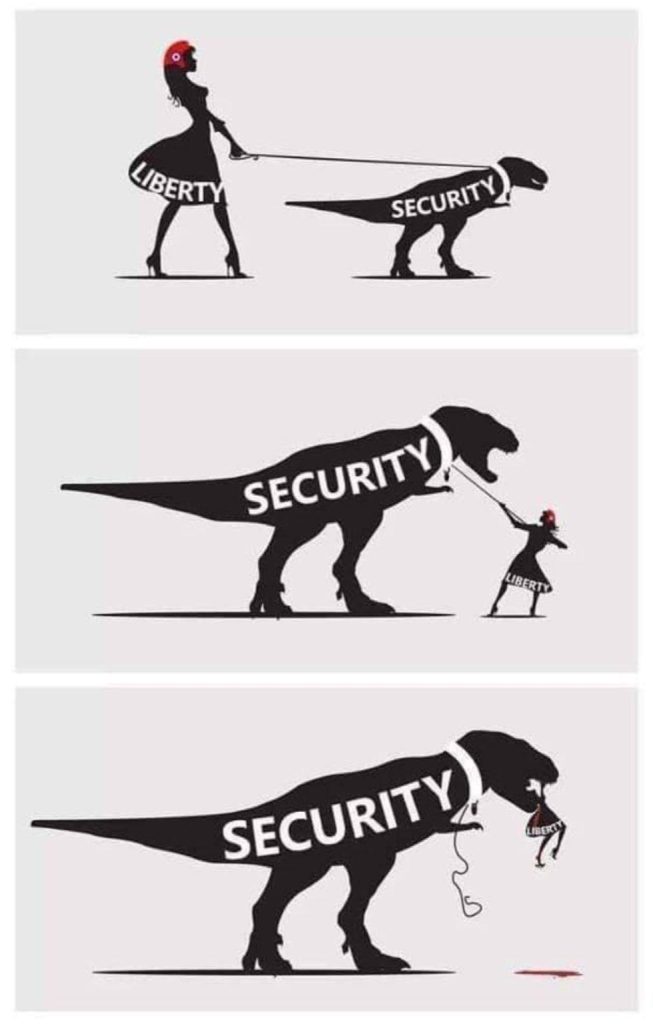
Note that we’ve used different terms in discussing the x axis of the graph above: control, mandatory safety, centralised safety, State-sponsored safety. These words are used because – and this is the second stroke of libertarian genius – true safety actually follows closely the line for freedom – peaking along with it, at the point of minimal (not minimum) interference. This is a very big and unintuitive claim, and if it’s true, dissolves most of the raison d’etre of the managerial State.
Here’s how it works: freedom naturally produces self-regulation, competition, and personal responsibility, which in turn create actual safety.
Self-regulation is better
Free individuals will, naturally and in general, choose to cooperate with and live next to like-minded people. A free society therefore tends over time towards a strong, cohesive, homogenous culture within regions and within nations. Such a culture is much more self-regulating than a fragmented, infantilised one. And distributed, local self-regulation is much quicker, more accurate and more effective than centralised regulation.
- Neighbourhood Watch schemes, where people who live near each other know each other and share information about crime and potential crime in real time, can make the activities of official law enforcement much faster and more efficient.
- People who, armed or not, have robust legal rights to self defence, and to reasonable defence of strangers, are much more likely to act decisively against bad guys. Remember, when seconds count, the police are only minutes away.
It’s also worth noting that communities with the qualities I’ve described are more effective at keeping their members in line with good old-fashioned disapproval. When a miscreant is provided their material needs by the impersonal State, their fellow citizens are just furniture, and may be abused without much unofficial consequence. A person embedded in a traditional culture, by contrast, depends much more on the good will of that community for a smooth life, and therefore has something to lose, something to fear, something to be ashamed of, that helps keep them in line, if their internal impulse control is lacking. It’s time we stopped thinking of this as regressive. It’s a feature, not a bug.
A monopoly on disaster
All State monopolies are more wasteful than an equivalent market of truly free organisations competing to serve a society of truly free clients.
Why is this? Misaligned incentives.
The incentive of a private company is to deliver the product that best satisfies the customer’s needs at the best price. A minimum set of laws (don’t pollute, don’t lie, keep accurate records, etc.) ensures that this is done without damaging society. Competition between companies prevents free workers from being paid less than whatever their labour is actually worth to the market (the “living wage” meme is a deliberate distraction; the real problem there is inflation), and creates a race to maximise need-satisfaction ever more efficiently.
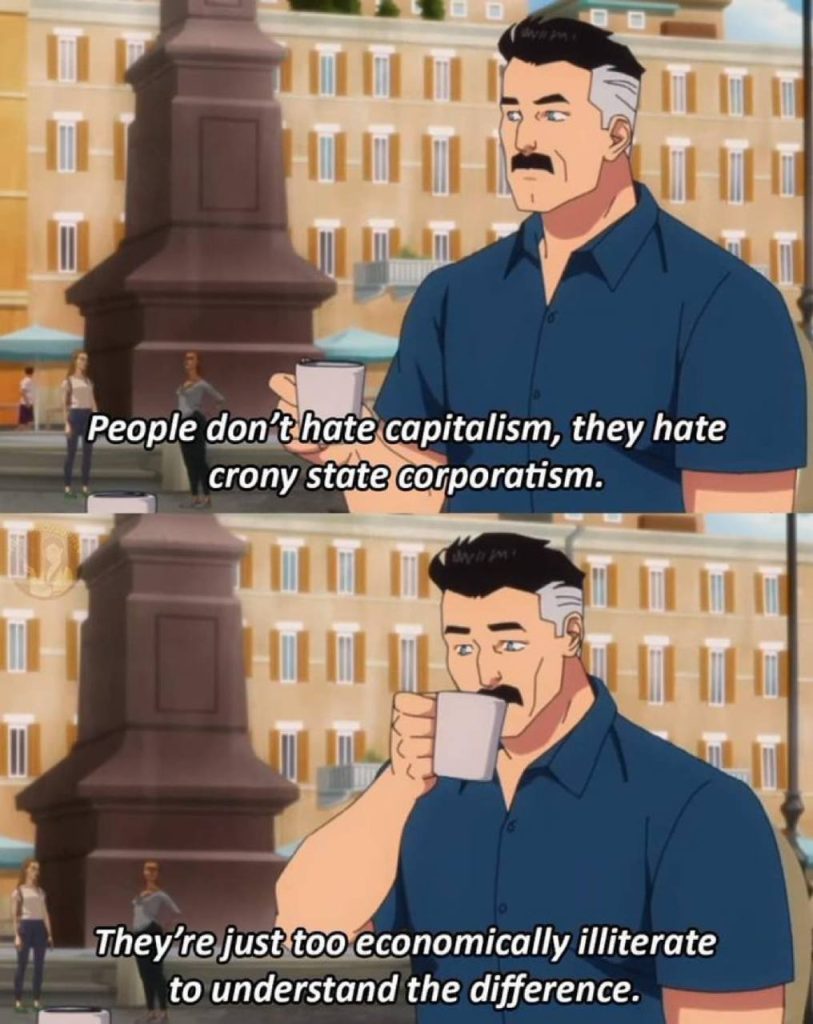
By contrast, a bureaucrat’s real goal is not to maximise clients’ satisfaction, or even to fulfil their job description, but to check boxes, steal whatever time (or, on a small scale in developing countries and on a grand scale in developed countries – cough USAID cough – whatever money they can), and at any cost expand their department. The resulting systems, inevitably and naturally, maximise busywork for government employees, push unnecessary work onto ordinary people, and add ever-more layers of complexity.
A State monopoly really means depriving people of alternatives by force. This coercion always produces at least somewhat worse outcomes than the alternative would have, and often those outcomes are much, much worse…
Easily the most terrible nuclear power disaster in history was the explosion of Reactor 4 at Chernobyl in 1986 under the iron fist of the Soviet Union: supposed to bring energy security to the people, it instead killed 31 directly, thousands more from cancer, and left vast areas so irradiated they have been uninhabitable for decades. You were of course free to dissent or criticise the official narrative in Communist Russia, and the reward was a one-way camping trip to Siberia. It’s not surprising, therefore, that the critical and well known design flaws of the reactor were ignored, nor that the true scale of the disaster was covered up. What is difficult to accept, though, is that residents of the plant workers’ town of Pripyat were not allowed to evacuate until 36 hours later, by which time many of them were already poisoned. Lack of freedom of speech and freedom of movement killed more people than the explosion.
Speaking of the joys of Far Left governments, the Great Leap Forward in Communist China was supposed to bring food security to that country by forcibly modernising and centralising an already-functioning-quite-well farming system. Instead, it caused the worst mass starvation event in modern history. Most estimates are that 30 to 45 million people starved over a period of two years. It would have been obvious pretty early on that it was not working. But the authorities persisted in the policies and even increased exports of grain to other countries at the same time. Had the food market been even slightly free, none of this could have happened.
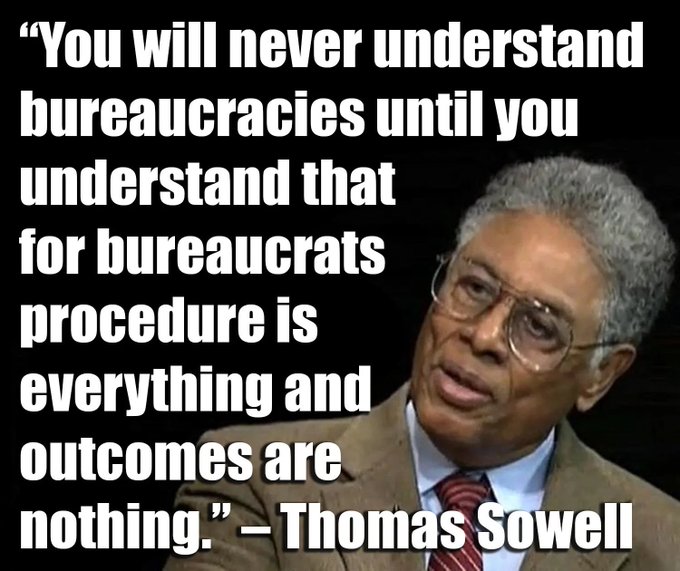
While we do need reminding every so often whither the well-paved road of Socialism leads, we don’t have to pick on obviously insane hard-left regimes like the United Soviet Socialist Republic or the Chinese Communists. We could look at many examples, such as the United States’ prohibition of alcohol from 1920–1933, done in the name of protecting the public from ill health and crime and achieving precisely the opposite. Or the terrible toll of the recent measures to protect us from Covid, enforced by every government everywhere. “No-one is safe from COVID-19 until we’re all safe,” they told us. Turned out no-one was safe, from them.
Free competition, free markets, and free choice ensure safety.
True safety is freedom from State monopoly.
Personal responsibility, or Whose safety is it anyway
Feeling safe comes out in our actions, when you let your children walk into town or your wife come home late at night alone, or you speak your mind without fearing for your livelihood, or you don’t hesitate to help a stranger in apparent distress. We know what safety means.
But “safety” these days has been twisted to mean safe from “offence”, from alternative opinions, from information that has not been officially filtered, from choosing your own options, from defending yourself or your own. It especially means that the emotionally crippled are safe from hearing you object to things you don’t like, or consider genuinely insane or dangerous.
Remember next time some mouthpiece praises “tolerance” that to tolerate literally means “to endure, to forebear, to thrive despite”. Tolerance is the attitude we take to bad things that we can’t for whatever reason avoid or remove. The reason they ask you to tolerate so many things is because even they cannot with a straight face ask you to admire and look up to them.
Personal responsibility, and the cohesive, homogenous society that results from it, is the antidote to all this. Freedom both enables and demands personal responsibility. You – or if you’re not very capable, your family, neighbours, friends, or other people you trust – have to take care of the decisions that make up your life, if the abusive adoptive parent of the State is not there to do it for you.
A community of people who are self-reliant, who are not merely oversized children but actual adults, who manage their own emotions and actions and are well used to evaluating what they see through their own reasoning and experience – such a society regulates and modulates and corrects itself. Free, informed people in an unfettered society naturally take care of themselves and others.
The great psychopathic fear underlying the modern Left is that people are basically Bad, and must be constantly coerced to do, think, and say the Right Thing, and therefore the less freedom, the better. But, apart from a small percentage of the criminally defective, and leaving aside for now the differences between cultures, this is in general simply not true.
History shows that, given conditions of relative surplus and stability that only a free environment creates, communities do in fact take care of themselves, whether through the type of charities that, among other things, provided effective medical care to the poor – before socialised medicine denied it equally to everyone – or as churches, families, companies, or individuals. They prioritise real safety, not the politically correct “safety” of the day.
The irony is that as you mandate and legislate for safe outcomes, you necessarily remove the responsibility-promoting freedom that produces safe systems.
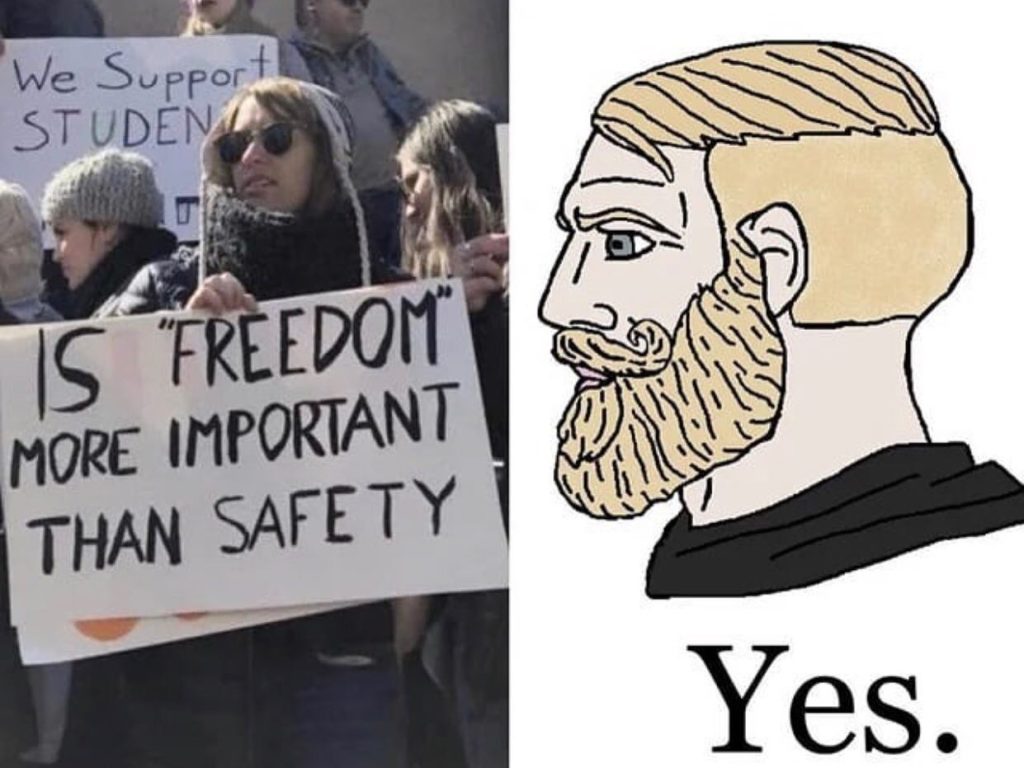
Individual freedom vs the group
Don’t we sometimes need to limit individual freedom in order to benefit Society, or some large part of it?
The answer is Yes, But.
The obvious case is where we target individuals (using relevant characteristics) and limit their freedom for the benefit of everyone, as when we lock up violent criminals so that the rest of us are free to walk the streets without fear.
However, when we limit everyone’s freedom in a specific way for some expected larger benefit, we must be very careful.
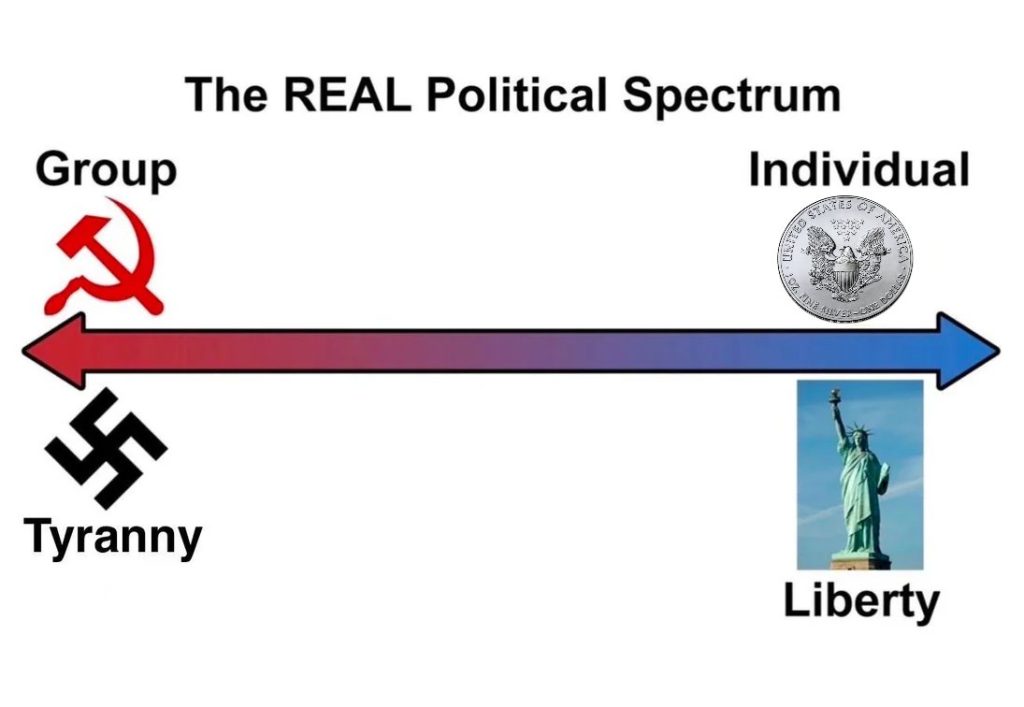
In the ideal case, we would:
- Calculate the gain and loss in the same terms – i.e., how much freedom are we losing and how much are we gaining – and make sure that it’s a net positive.
- Include second-order effects in our calculation – what else is likely to happen if we take a certain action? What precedent does it set? What incentives does it create?
- Explain the entire calculation and allow everyone affected (or a majority) to give informed consent.
The fact that such calculations are difficult is not an excuse. Anything less than this is a betrayal and should be prosecuted as such.
Let’s take the obvious example of Covid lockdowns to see how this works.
- The purported gain was in terms of temporary safety. It was not clear that this was a net positive compared to the primary loss of freedom to work, to socialise, to see one’s family, take care of obligations, to attend school, etc.
- The second-order effects were not considered until afterwards. While still under-discussed, they include educational and developmental retardation, personal financial damage, and economic damage. The precedent is horrendous – might they lock us down again for monkeypox, or bird flu? One incentive was that compliance, in terms of enforcing the rules or snitching on those who didn’t, made you (feel) important and virtuous; a very corrosive social dynamic that is pervasive under totalitarian regimes.
- The entire calculation was not even attempted, let alone explained or understood. It was simply imposed, and the fact that we let them do it tells you everything you need to know about how little we understood the subject of the current article.
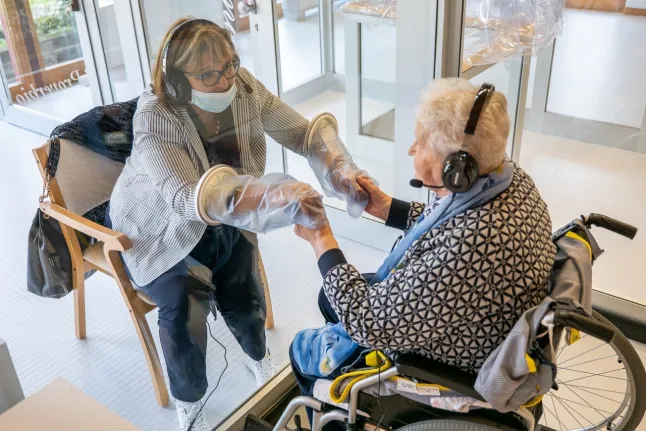
The larger point is not that Covid lockdowns were a bad idea (although they were), but that there’s a right way and a wrong way to go about the business of maximising individual freedoms (for the group is merely a collection of individuals). The right way is – conservatively, with a sense of humility and an eye to the future.
Responsibility & meaning
In the current climate, where every institution is trying to remove our freedoms while at the same time telling us that they’re not doing that and anyway freedom isn’t important and also shut up, the crucial thing is to understand the simple truth that freedom is important – more important than everything they try to distract you with.
For now, it’s difficult to imagine even winning that fight, let alone what comes after it. And yet, at the risk of diluting the main message of this article, we must, for completeness, consider what we should do with whatever amount of freedom we have.
The meaning of life, or at least one necessary level of it, is pretty simple. It’s been said many times in many ways:
Your life becomes meaningful in precise proportion to the depths of the responsibility you are willing to shoulder.
Dr. Jordan B. Peterson
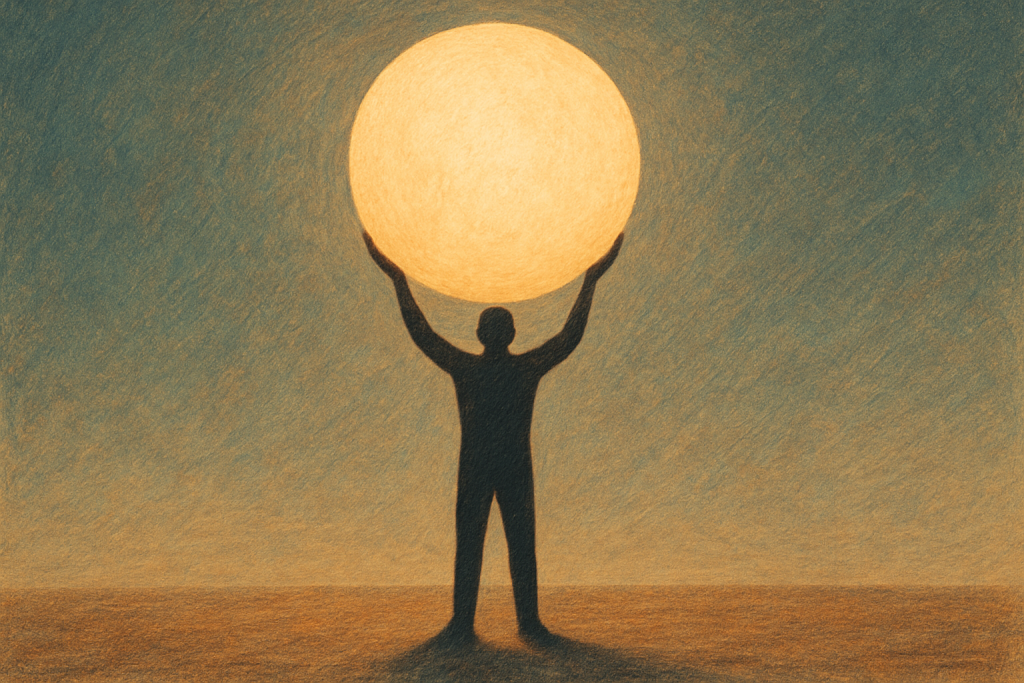
Since we’ve been comparing things, is not the meaning that we get from taking responsibility (for something positive that’s larger than ourselves) better than the mere freedom that we’ve been idolising?
This is a false comparison.
Freedom cannot be more or less important than meaningful responsibility, for we do not have a choice between freedom and responsibility. They are both required.
Freedom, however, is not the last word. Freedom is only part of the story and half of the truth. Freedom is but the negative aspect of the whole phenomenon whose positive aspect is responsibleness. In fact, freedom is in danger of degenerating into mere arbitrariness unless it is lived in terms of responsibleness.
Viktor Frankl (1992). Man’s Search for Meaning, 4th edition. Boston: Beacon Press, 134.
Freedom from constraints imposed by others is required in order for us to be able to pursue maximum meaning. Paradoxically, our own freedom is reduced in proportion as we shoulder meaningful responsibility:
- Being in a committed relationship removes your freedom to sleep around.
- Raising children takes away most of your free time.
- Taking part in meaningful project or team work constrains you to do what is needed, not whatever you feel like.
But don’t get confused. We need to gather as much freedom as we can so that we can spend it wisely, and this is not a contradiction.
This understanding also neatly takes care of the question of freedom vs happiness. There is no “versus”. Happiness is found in enjoying one’s freedom. Superficial happiness is found in enjoying it in a superficial way. Deep happiness is found in transforming it into deep meaning.
Freedom is the highest good
Freedom is thus either better than every other good thing, or required for every other good thing. Therefore, it is the most important thing.
Although we’ve seen how we should and do accept some limitations to our freedom in the form of the minimum effective dose of laws, this is only in service of maximising freedom in general, and does not mean swapping it for something else.
Indeed, the degree to which we willingly swap freedom for comfort, safety, conformity, or for anything else of lesser value, is the very measure of our character – our principles or pretence, our fortitude or frailty.
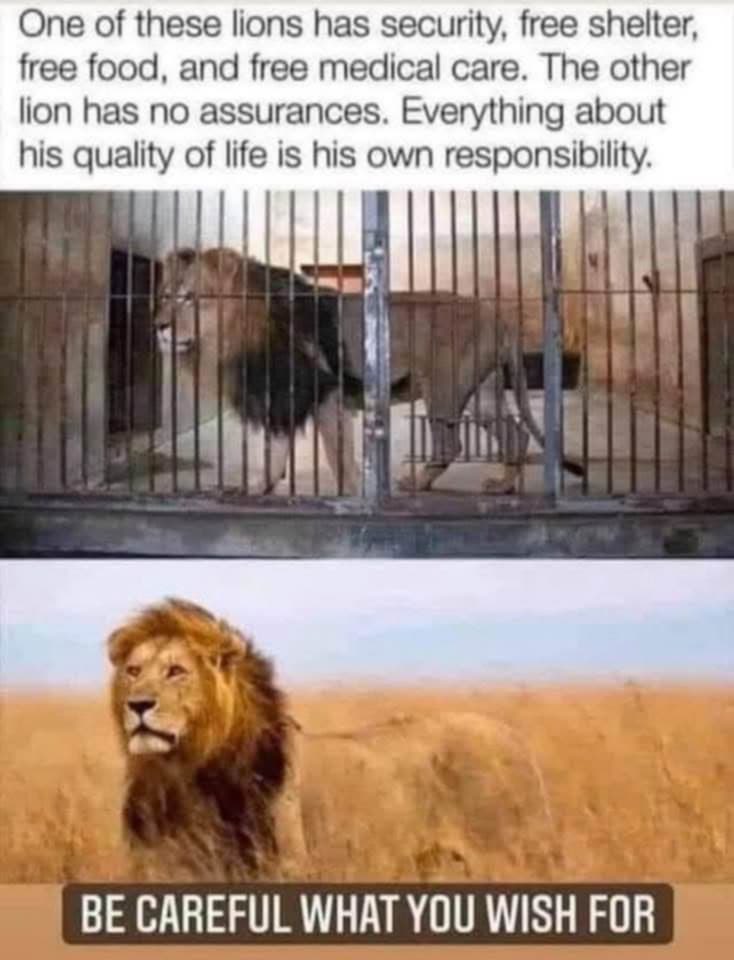
We should only exchange a given freedom for a higher freedom, or for self-chosen meaningful responsibility.
It follows that whoever wants to restrict your freedom, no matter how compelling their cover story, is your enemy. Act accordingly.
🌍 Share this:
Want more to read? Here are my latest articles:

